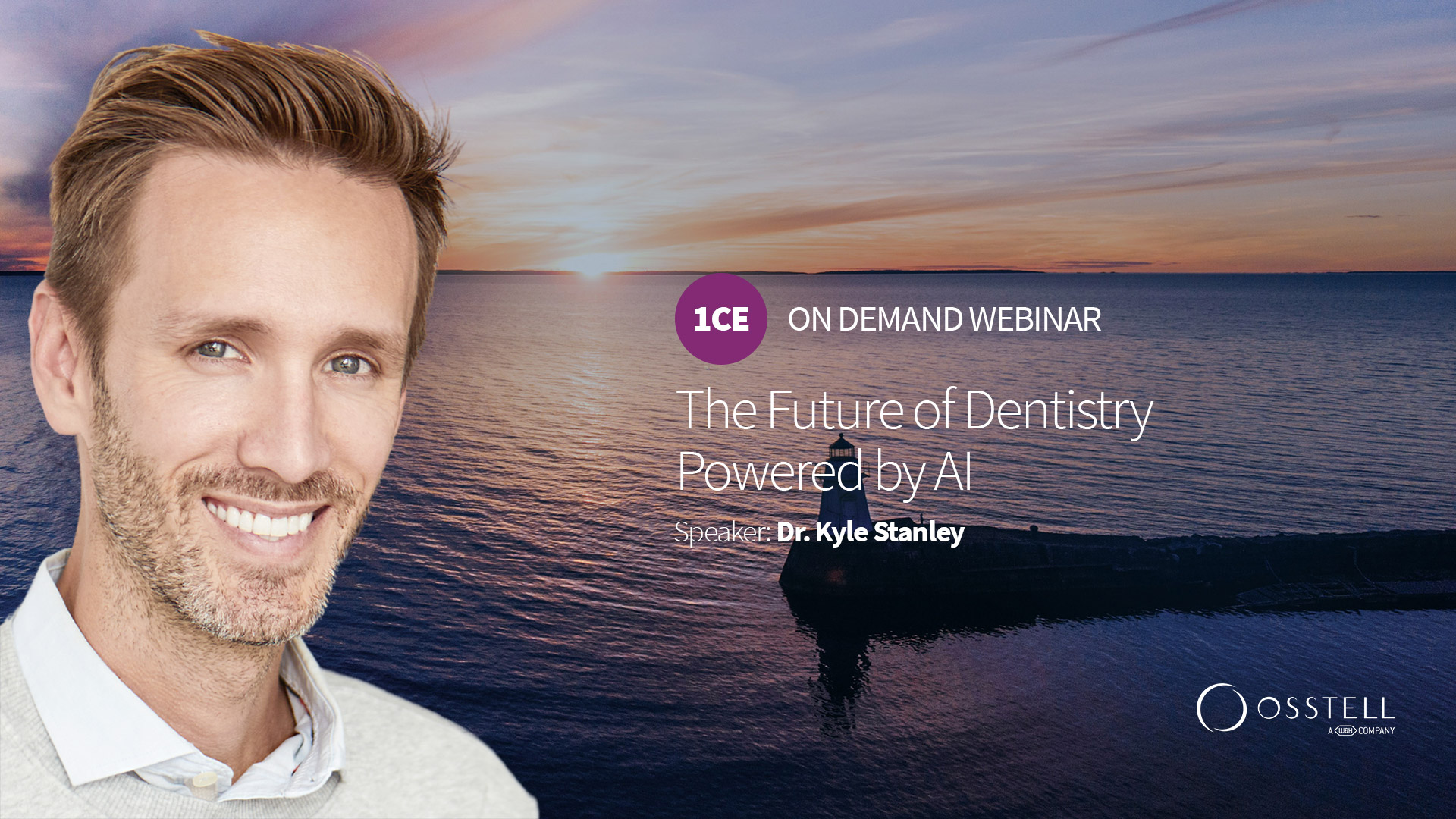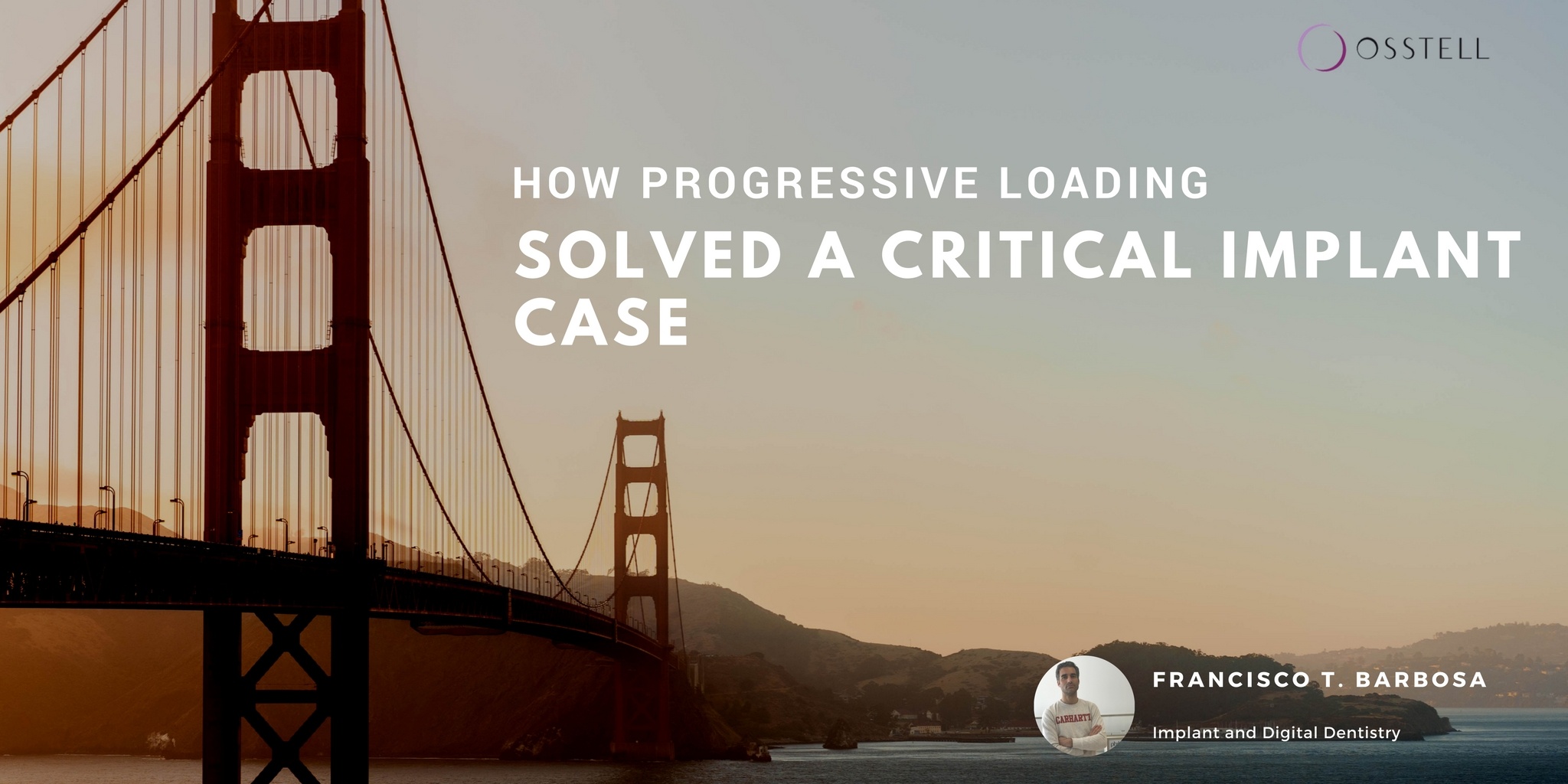
Dr. Kyle Stanley is an award-winning dentist and the chief clinical officer at Pearl, an AI company specializing in diagnostic and business analytics solutions for the dental industry. A graduate and former faculty member of USC’s Herman Ostrow School of Dentistry, Dr. Stanley’s esthetics, dental implant, and smile design research has been published in the top international dental journals. He has been honored with the AAED’s Charles L. Pincus Award for outstanding achievement in esthetic dentistry, and named to the AACD’s The Next Generation of Cosmetic Dentistry and Seattle Study Club’s Top 10 Young Educators in Dentistry lists.
Answers from the speaker
In his lecture “The Future of Dentistry Powered by AI” at the Osstell ISQ Symposium 2021, Dr. Kyle Stanley talked about the basics of Artificial Intelligence (AI) and how it is changing dentistry; a topic that clearly engaged the audience and many questions were asked during the lecture. In this blog post you can read the answers to all the questions that came in and dig a little deeper into AI as well as getting a glimpse into the future.
What would you suggest to do in order to get some objective and non biased advice how to implement some technologies utilizing AI in my practice, and where to start?
Dr. Kyle Stanley: There are only a few dental AI solutions out there – and fewer still that are actually viable. I would suggest requesting demos from the various vendors – see what their feature sets are, note which features they highlight, ask hard questions, etc. In pretty short order, you’ll develop a clear sense of how you’ll want to apply AI and which systems can give you the results you’re looking for.
What is the difference between Artificial intelligence and Augmented intelligence?
Dr. Kyle Stanley: There is no difference. The term “augmented intelligence” was conceived by people who felt that “artificial intelligence” could seem threatening – as though our human intelligence is at risk of being superseded by AI. Really, “artificial intelligence” simply describes any kind of machine system that can perform tasks that have traditionally required human intelligence. It could be argued that calculators represent a form of artificial intelligence. Do we see calculators as a threat? No. They are tools that we use to augment our human intelligence. The people advancing “augmented intelligence” took that concept and twisted it into a new coinage. In my opinion, “augmented intelligence” is an ineptly conceived stand-in for a perfectly good, nearly 70-year-old term—and, for that reason, I don’t expect it’ll have long-term traction.
“It could be argued that calculators represent a form of artificial intelligence. Do we see calculators as a threat? No. They are tools that we use to augment our human intelligence.”
Is there a difference between AI and what OsstellConnect does?
Dr. Kyle Stanley: Yes. OsstellConnect is not AI, but rather is an AI catalyst. Osstell is collecting very rich, highly standardized data – exactly the kind of data that the development of AI requires. When this data is used to feeding a machine learning engine, it can become the basis for an AI system capable of producing powerful insights on patient populations and individualized treatment protocols.
Hi Dr. Stanley, excellent perspective on the use of AI in Dentistry. What Big Data exists for application of AI analytics in Dentistry?
Dr. Kyle Stanley: Thanks to the digital dentistry revolution, we have a ton of data in dentistry. Digital radiographs, intraoral scans, Osstell readings, digital chart notes, treatment plans and even insurance claims — all of these digital sources amount to troves of data that, until recently, offered little to no benefit to the industry. Thanks to AI, all of that data is now ripe for AI to harvest and process in order to serve us with benefits that will transform how we deliver care and how much that care benefits our patients.
What do you think about patients in the future? Will they kind of expect that you have the latest AI in Dentistry to provide personalized treatment?
Dr. Kyle Stanley: I fully expect that within the next 10 years AI will be considered a basic utility, like water, power and radiography, in every dental practice. Not only will patients expect it, but doctors will consider it silly – irresponsible even – to examine a patient or develop a treatment plan without AI input.
You mentioned legal aspects and insurance companies, will they be using AI to control treatment plans for insurance cases? Will this mean that they catch bad dentists?
Dr. Kyle Stanley: AI is fundamentally objective. Its operation is not affected by external influences or incentives. Within the context of insurance claims, what that means is that AI systems will validate quality work and flag substandard work – both of dentists and of claims adjudicators. There’s a tendency to see any tool that could help insurance companies as inherently dubious, but I would much rather have an objective AI reviewing my work than a human adjudicator who not only brings a subjective approach to evaluation, but also is to some degree incentivized to find errors in my work. An AI will be honest. If my work isn’t good or I try to put one over on the insurance company, I will be caught. If my work is good, then AI will ensure that I’m fairly reimbursed – and reimbursed more quickly than we are now.
In your view, is it fair to assume that the main gains of AI in dentistry – at least initially – will be in the form of time savings by automation/admin, and later also quality like consistency?
Dr. Kyle Stanley: I think that the most important benefit that AI provides is consistency. Automation and administrative benefits are important too, and add to the appeal of AI – especially to office staff who see it lightening workloads and increasing operational efficiencies – but the consistency of AI is really what makes automation possible. We prefer to focus on the more human tasks that machines can’t do, but we could never feel comfortable turning over those tasks to automation if we aren’t sure that the AI behind them reliably delivers quality results.
Does AI diagnose the patient’s pocketbook? AI utopian care and Dental Benefits have a big disconnect.
Dr. Kyle Stanley: While it will eventually bring us to a point where we can deliver perfect alignment between patient, condition and treatment, AI will not eliminate financial impediments to treatment. What AI can do, however, is bring some financial clarity to our approach to treatment planning. AI can predict a patient’s ability to complete treatment based on insurance, treatment history, spending habits, history of attendance at appointments and other factors. With that kind of insight, we can select a course of treatment that is both financially feasible for a given patient and medically effective for a given condition.
Thank you everyone joining us at the Osstell Scientific Symposium. See you again next year!
You can watch the webinar on-demand here.
More information about the symposium can be found on www.osstellcampus.com.



Add comment